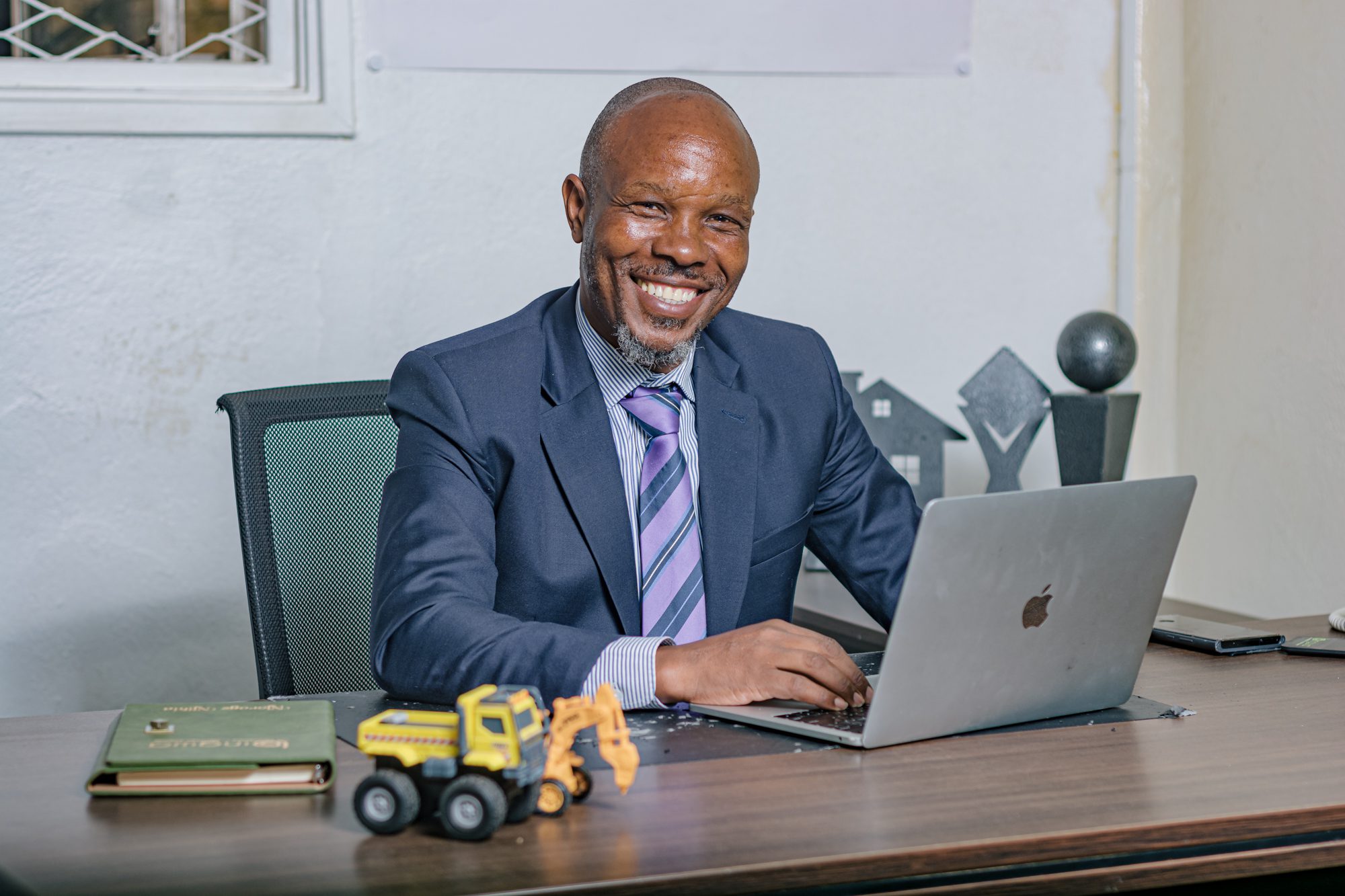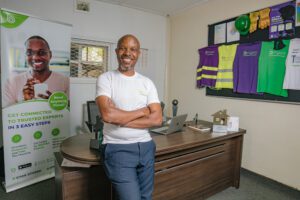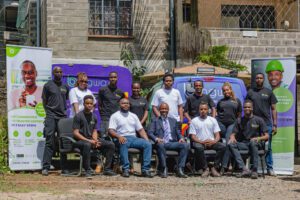advertisement
Bingwa, A New Platform That Seeks To Optimize Kenya’s Gig Economy

Njihia Njoroge finds fulfilment in teaching students of ages 6 to 17 in community building, discovering the truth and living differently. He is a member of the prestigious Inspired Individuals Initiative (T3i), a global program under Tearfund.
Njihia didn’t complete his Masters in Business Administration (MBA) degree from the University of Nairobi after the innovation bug biting. He is a Bachelor of Agri-Business Management Degree graduate from Egerton University. He has worked across industries with leading organizations; IT – Software Technologies Limited; FMCG – East African Breweries Limited and Banking – K-Rep turned Sidian Bank.
In the last 12 years, he has worked as the vision caster and founder-director of www.sahihi.co.ke, a company he has turned into an award-winning preferred office, retail and mixed-use commercial turnkey projects interior builders. He has identified a gap in the industry that www.bingwa.ke is addressing aptly. The platform seeks to optimize the Kenyan gig economy by linking reliable home services providers with prospective clients. CIO Africa had a sit down with him.
advertisement

Question (Q): What does Bingwa do?
Answer (A): Bingwa answers the question – How do I get quick and easy access to a wide pool of homecare technicians?
Bingwa offers the best and fastest match for your homecare needs. Only Bingwa has S3 technology: Smart Match, Swift Match and Style Match. Anchored as an empathetic, reliable and convenient product, Bingwa condoles with many disappointed service seekers who have not only lost money and promised quality but have also lost trust.
advertisement
The handymen and women offering these services have also lost the fragile trust from quality demanding clients who pay peanuts to Bingwa’s invaluable skills.

Q: What market pain points does Bingwa solve?
advertisement
A: There are many pain points in the service industry and just a few that shall be addressed by Bingwa are:
- Poor/bad quality service expecting maximum pay
- Optimal quality with poor compensation
- Reliability challenges from service providers
- Limited information on project process
- Hidden or undisclosed costs.
- Lack of big brother to connect skills to clients.
- Eroded industry standards.
Q: What is your business model?
A: Bingwa’s service providers also known as handymen or handywomen with respective skills (starting with construction’s plumbing, electrical and painting) self-onboard themselves after downloading Bingwa.KE from Playstore or Partner.Bingwa.KE on their browsers. Other industries of immediate focus are Beauty, Home & Dear Care, Automobile & Security.
After qualification documents upload, pricing for their services, and police clearance (good conduct), the Bingwas are trained on soft skills to live out the brand DNA and deliver amazing experience to every client.
Upon order from Client App after quotations and payment, the money for the task is held in an escrow account until the task is done to completion and to the client’s satisfaction. The Bingwa invites the client to assess the completed task and requests the issuance of a certificate of completion (coc). This COC releases the payment from the escrow account to the service provider account. Rating and review are precious to every Bingwa to ensure more business and avoid the risk of inactivation out of poor overall rating.
The client and the gig worker feel secure from the SOS feature on the App when the task is active. Other value adds such as big hopes aspirations, personal and general risk management and growth path are designed on the App.
Q: Who are your customers and what services do you offer?
- Baba Njoroge (Mubaba) – 50+ years of age, has a family, works, drives a big car, likes to drink beer and some nyama, has one or a few apartments and new tenant needs a new coat of paint and the usual painter is unreachable for the last few days.
- Nicki (Auntie Wa Harrier) – 35-50 years or age, has multiple sources of income, loves her glass of wine, drives a sleek car, uses Facebook or Instagram, an independent mom whose bathroom has blocked and requires immediate attention from a Reliable Plumber from Bingwa.
- Hilla (Subaru Boys) – 25-40years – Single guy, freelancing jobs or an IT dude, drives a Subaru Outback, On Twitter and Instagram a lot, drinks expensive whiskey and just before the house party the power has gone off only in his house and requires a Skilled Electrician ASAP to Power Him Up AND impress the night’s guest.
- Young City Couple – 27-35 years, have a kid or two, both have demanding jobs with meetings after work, drive Toyota Demio, focused on investments to making them busier. They need a painter to Paint the mood for the coming 1st birthday for their 1st born which is a big one.
- Babygirl – 20-28 years – Single church girl or lives in a Mubabas supported apartment, spends time on socials and parties daily. Make-up and fashion are key and the bedroom bulb is out and requires change from an electrician.
Q: What stage would you describe the Kenyan gig economy to be in? why?
A: The gig workers have enjoyed choosing how much to work and when to work with little supervision. Gig economy has though not realized the dream of many hopeful Kenyans. Viz:
- Negotiation power to a fair pay and income uncertainty.
- Extractive nature of innovation owners.
- Pension and maternity leave benefits.
- Autarchic disciplinary measures that can get one working with fear of removal from the platform.
Q: What three main lessons you can highlight in your entrepreneurial journey with Bingwa?
- Curiosity within expert industry leads to solid innovations.
- A shilling from a million clients is more promising than a million shillings from 1 client.
- Determined good people using bad systems shall reach all heights.
Q: What’s your take on the recently passed ICT Bill 2020?
A: It’s a protective strategy and shall slowly lock out young innovative minds likely leading to brain drain, as usual, and beneficiaries will be the West, Rwanda and any other progressive liberal un-regulating economy.